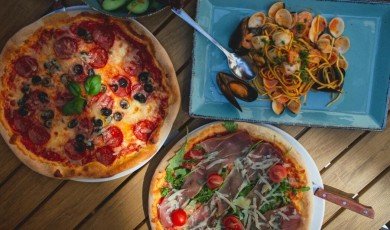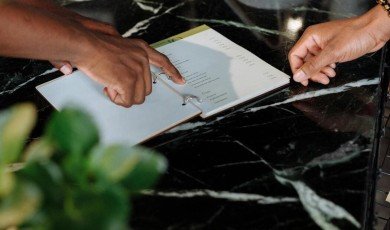
Dubai, renowned for its breathtaking skyline, luxurious lifestyle, and innovative spirit, also boasts a diverse and vibrant culinary landscape. As a top destination for tourists and expatriates from around the globe, the city’s restaurants cater to an impressive mosaic of cultures and tastes. But with this cosmopolitan clientele comes a unique challenge — bridging linguistic and cultural gaps, not just in hospitality, but increasingly in matters related to health and well-being. This is where the connection between the language of hospitality and medical document translation becomes vital.
Language: The Cornerstone of Dubai’s Hospitality
Hospitality in Dubai goes beyond luxury interiors and sumptuous cuisines. It is about creating meaningful connections and unforgettable experiences for every guest, regardless of origin or background. Language is at the heart of this connection. Dubai’s restaurant scene employs staff from all corners of the world, serving guests who speak dozens of different languages. Multilingual menus and staff trained in multiple languages have become standard. Whether it’s explaining the ingredients in a fusion dish or ensuring dietary requirements are met, effective communication is essential to guest satisfaction and safety.
As globalization accelerates, an increasing number of restaurants are offering specialized menus addressing diverse dietary needs such as vegetarian, gluten-free, halal, kosher, and allergen-sensitive options. Ensuring these are accurately translated in multiple languages – from English and Arabic to Russian, Mandarin, French, Hindi, and beyond – reduces misunderstandings, enhances safety, and demonstrates true hospitality.
Health and Safety in Multilingual Settings
While food is the main attraction, health and safety play a pivotal role in the restaurant industry. Guests may carry medical conditions or food allergies that require immediate and precise communication to prevent accidents. In a city where language diversity is the norm, the need for clarity is heightened. A single mistranslation in a menu or miscommunication regarding a medical emergency can have serious consequences.
For example, when a guest with severe nut allergies dines at a restaurant and language barriers exist, a simple error or omission in translation can be life-threatening. Therefore, restaurants increasingly rely not just on general translation experts, but also professionals with experience in medical document translation to accurately communicate health and safety information.
Medical Document Translation: The Hospitality Industry's Secret Weapon
While it might seem that medical document translation exclusively concerns doctors, clinics, or hospitals, its relevance to the hospitality sector, particularly in Dubai’s fine dining scene, is growing rapidly. Here’s how:
1. Handling Medical Emergencies
Dubai’s restaurants, many located within hotels or resorts, are often the first to respond in emergencies — from allergic reactions to diabetic attacks or other medical crises. Accurate translation of medical documents or emergency protocols, such as allergy action plans or first-aid instructions, becomes a life-saving measure. This is especially crucial when guests do not speak Arabic or English, and staff need to refer to translated materials to relay information to paramedics or doctors swiftly.
2. Allergen and Ingredient Transparency
Allergen lists and nutritional labels are more than regulatory requirements — they are essential tools for guest trust. Restaurants that provide these documents in multiple languages, utilizing medical document translation experts, empower diners to make safe, informed choices, especially those with strict dietary restrictions or health conditions.
3. Menu Localization with Medical Precision
Menu localization isn’t simply about replacing words; it’s about ensuring that culinary and medical terms, especially those related to ingredients, preparation styles, and potential allergens, are conveyed with scientific accuracy. A translation error in differentiating “milk” from “lactose” or “nut” from “legume” can be harmful. Medical translation specialists bring clarity and correctness, surpassing what general translation services may offer.
4. Compliance with International Standards
Dubai’s reputation as a global hub depends on strict compliance with international food safety and hospitality standards. Accurate translation of safety guidelines, staff training materials, and medical protocols—so that every team member, regardless of native language, understands them—is not just good practice; it’s often a regulatory necessity.
Integrating Medical Translation Services into Hospitality Operations
So, how do Dubai restaurants and hospitality providers harness the power of medical translation services effectively?
Training Multicultural Teams
Staff training in the restaurant sector includes understanding menu items, customer service etiquette, and increasingly, responding to health emergencies. Providing training materials regarding first-aid procedures and allergy management in multiple languages ensures all staff—not just those fluent in English or Arabic—can act promptly and correctly in emergencies.
Collaborating with Professional Translators
Partnering with language service providers specializing in both hospitality and medical translation ensures that all documents—menus, signage, staff manuals, and emergency protocols—are both culturally sensitive and medically accurate. This dual expertise supports both guest comfort and safety.
Empowering Guests through Multilingual Communication
Digital menus, mobile ordering apps, QR code-based information, and printed materials in guests’ native languages provide an extra layer of reassurance. Not only do these make guests feel valued, but they also allow for the unambiguous relay of critical dietary or medical information.
Adapting to Global Health Trends
As health and wellness trends evolve, so does the vocabulary and documentation used in the hospitality industry. Restaurants introducing vegan, allergy-friendly, or low-calorie offerings now require fresh translation of new medical and nutritional terms—once again, emphasizing the need for ongoing collaboration with expert translators.
A Multilingual, Health-Focused Dining Culture
The future of Dubai’s restaurant industry is clear: as the guest profile becomes more diverse and health-conscious, the need for precise, reliable language services transcends basic hospitality. It extends into the realm of medical communication, ensuring every guest’s needs—culinary and health-related—are met with the highest standard.
As Dubai continues to set benchmarks for global luxury and service excellence, integrating medical document translation into daily operations isn’t just a smart business move—it’s a reflection of true care and responsibility.
Conclusion
Dining in Dubai is not just about savoring world-class cuisine; it is an immersive experience rooted in hospitality and safety. High-quality communication—especially in matters of health—defines memorable, trust-filled experiences for guests from all walks of life. By embracing medical translation services and professional medical document translation, Dubai’s restaurants set themselves apart as global leaders, welcoming every guest with open arms, open kitchens, and open hearts. In the language of hospitality, nothing speaks louder than the assurance of safety and care, understood by all.







